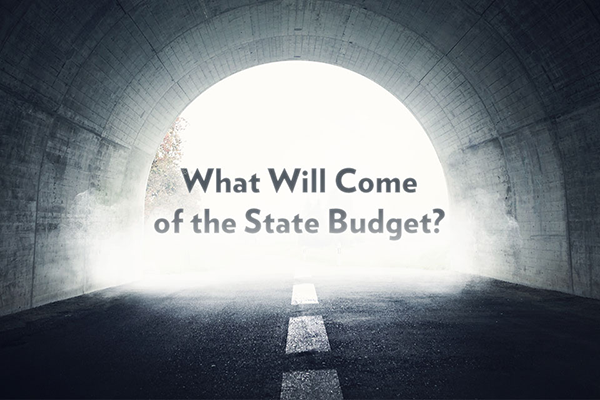Media

House Budget Solution Spares Taxpayers
Tired of hearing about the state budget impasse? There could finally be light at the end of the tunnel and, for taxpayers, it’s not an oncoming train.
On Wednesday, the state House passed a $2.3 billion revenue plan that could end the budget impasse that’s lingered since June 30. The House plan—when combined with passage of liquor reform and some sort of gambling revenue—will pay off last year’s deficit and fill this year’s projected shortfall; largely relying on money that’s been sitting untouched for years in obscure government bank accounts.
It’s unfortunate the state found itself in this fiscal crisis to begin with. Due to slow economic growth and overspending by Gov. Wolf, last fiscal year ended with a balance sheet $1.5 billion in the red. The problem was exacerbated this year when the Legislature passed a spending plan without a plan to fully pay for it.
Wolf let the spending plan become law, ignoring his legal obligation to ensure a balanced budget for the second year in a row.
This fiscal mismanagement left Wolf and many lawmakers insisting the only way to pay for their reckless spending was to force Pennsylvania families to pay higher taxes. In July, the state Senate passed a $570 million tax hike. This includes higher taxes on home heating, electricity, and cell phone bills—affecting almost every family in Pennsylvania with higher costs.
Wolf, who had previously asked for a larger tax increase, endorsed the Senate plan. This would represent the fifth state tax increase in nine years.
But the House, acting as the last line of defense between hardworking Pennsylvanians and harmful tax increases, crafted a plan to balance the budget without tax increases or additional borrowing.
How’d they do it?
It turns out most of state government’s cost is effectively hidden from view in a shadow budget. This “off-book” spending includes more than 200 special state funds that are rarely scrutinized and often grow on autopilot each year. As of early September, the shadow budget held more than $9 billion in surplus funds.
The House plan redirects $630 million from these shadow-budget surpluses—money taxpayers have already paid but is sitting dormant—to pay off part of last year’s deficit. This will not reduce annual funding for shadow budget programs, except for a small reduction in subsidies for horse racing prizes.
Instead, the plan draws on a fraction of shadow-budget reserves—many of which haven’t been used in at least three years—leaving ample surpluses in place even after funding all of Gov. Wolf’s proposed spending.
The House plan would also raise $1 billion by selling a portion of the Tobacco Settlement Fund, with the state pension funds having the first option to buy. In exchange for this up-front payment, the pension funds would get approximately one-third of settlement payments over ten years.
Unlike the state Senate’s plan, the House proposal requires no debt or interest payments and would deliver revenue to balance the budget and to help pay down our pension liability.
Rounding out the revenue package are taking excess funds from the legislature’s own reserve and additional revenue from gambling changes and liquor reforms.
In recent weeks, we’ve heard claims that a no-tax-hike budget will wreak havoc on the state. After claims that Pennsylvanians will suffer and schools, police, and the court system will cease to exist, it’s difficult to tell whether we’re talking about a balanced budget proposal or the apocalypse.
House members deserve enormous credit for cutting through the hyperbole and showing that the budget can be balanced while respecting Pennsylvanians’ wallets.
While the House proposal would solve the immediate budget shortfall, it shouldn’t leave lawmakers off the hook for passing unbalanced, unaffordable budgets. Pennsylvanians must continue to hold their lawmakers accountable and demand they control spending.
Additionally, it’s critical that Wolf agree to meaningful human services reforms—which both the House and Senate passed—to empower Pennsylvanians to transition from dependence on government spending to self-sufficiency.
The good news is there’s finally hope that the budget mess will soon be resolved without asking families and job creators for more.